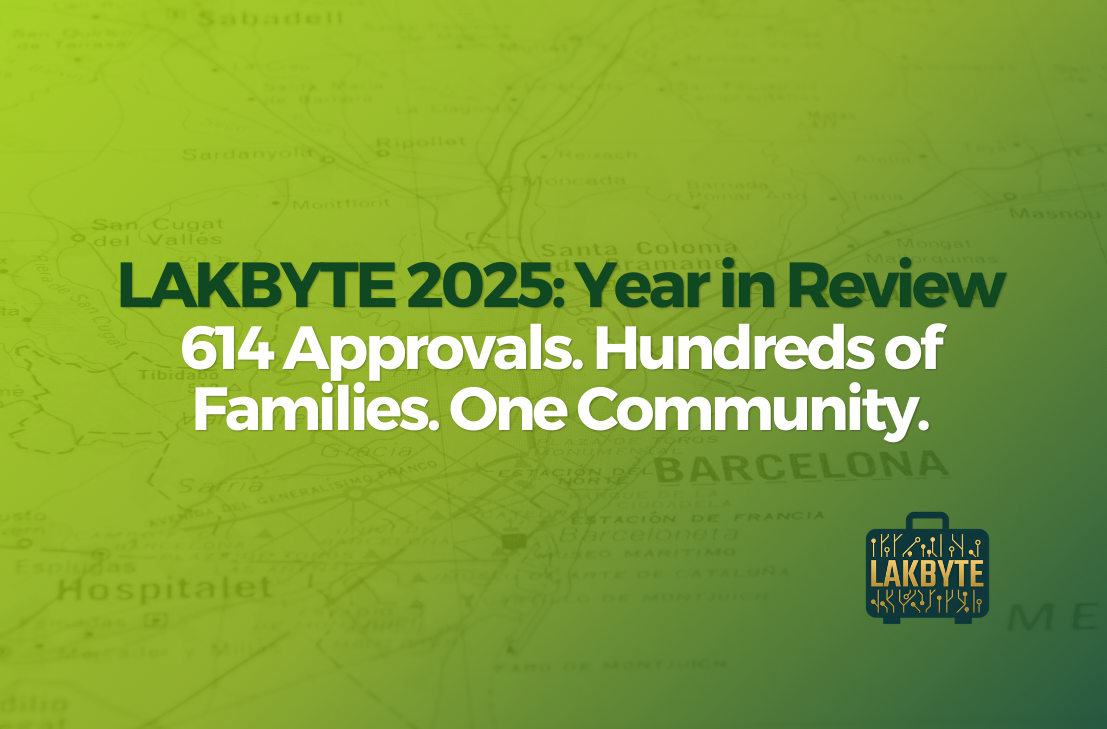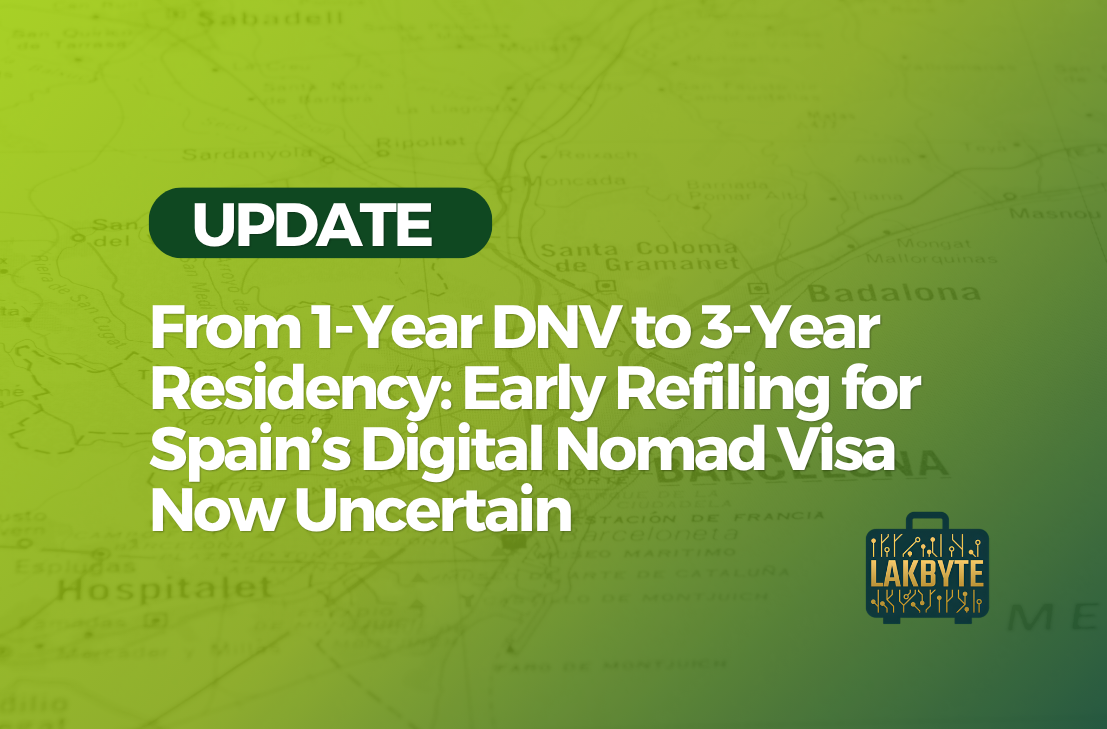
For quite some time, a key strategy for Digital Nomad Visa holders was clear: upon arriving in Spain, you could immediately apply for the three-year residency.
However, in early September 2025, we began to detect a significant and unannounced shift from the UGE. Rather than making a premature public announcement that could cause unnecessary panic, we chose to first observe, gather data, and immediately advise our active clients on the developing situation. This is a core part of the premium, proactive support we provide.
Now that we have analyzed a clear pattern of contradictory decisions, we believe it is our responsibility to share this intelligence with the wider community. This is our data-driven analysis of what is really happening with the “60-day rule.”
The History: From Accepted Practice to Widespread Rumor
For quite some time, this early refiling process worked seamlessly. Applicants across different jurisdictions, including from Bangkok (Thailand), Hanoi (Vietnam), Tokyo (Japan), and Manila (Philippines), were consistently approved for their three-year residence authorizations even when they applied well before the expiration of their one-year visas.
However, by late November to early December 2024, rumors began circulating that this practice would be discontinued. The new interpretation, reportedly based on the 60-day rule, suggested that applicants would only be allowed to refile within the 60 days before their one-year visa expires, and not earlier.
Putting the Rumor to the Test
Despite this, our team decided to test the boundaries of the policy. We continued to submit early applications for DNV holders whose one-year visas were still active.
To our surprise, the applications continued to be approved, across multiple nationalities and consulates, well into July, August, and even early September 2025.
This seemed to confirm that the UGE (Unidad de Grandes Empresas y Colectivos Estratégicos) was still admitting and approving early refiled DNV applications, even those submitted outside the 60-day window.
September 2025: The Turning Point
In early September, the first signals of a real change appeared. We saw an application (from another provider) denied for being filed “too early” after the applicant consulted with us. Shortly after, one of our own applications, filed on August 20th, was also deemed inadmissible for the same reason.
This seemed to confirm a new, stricter policy.
But the situation is far more complex.
The Data: A Story of Inconsistency
This is not a simple, black-and-white rule change. It is a story of chaos and contradiction. Consider the data we have tracked from this period:
- Contradiction #1: On the same day that our August 20th application was deemed inadmissible, another of our applications, filed earlier on August 15th, was APPROVED without issue.
- Contradiction #2: Even after our August 20th denial, we saw a wave of other early applications, filed on dates like September 18th and 19th, also go on to be APPROVED without issue.
The Current Statistics
To date, out of 28 applications filed between August and September 2025, the outcomes have been as follows:
- 16 approved
- 2 declared inadmissible
- 10 still in process
These numbers illustrate just how unpredictable the current interpretation is. Even applications filed under identical timelines and with similar supporting documentation have resulted in different outcomes, depending on the reviewing officer.
Our Strategy: The Legal Memo
Faced with this inconsistency, we didn’t just hope for the best. We developed a proactive legal strategy.
For all of our early renewal applications, we began attaching a detailed legal memo. This document argues, based on specific provisions in Ley 14/2013, that the 60-day window is not a prohibitive bar to earlier filings and that these applications should be admitted.
The result? Our own August 20th application, which was initially deemed inadmissible, was immediately refiled with this legal memo and was subsequently APPROVED.
This proves that a strong, proactive legal argument can be effective.
The Current Reality: Still Random
However, we must be brutally honest. Even with this success, we have since seen another application, also filed with a legal memo, be deemed inadmissible.
This confirms our final analysis: right now, the process is random. Even with a powerful legal argument, there is still a risk that an early application will be rejected on this technicality.
Our Final Recommendation: Navigating This Uncertainty
The current landscape for one-year DNV holders is undeniably complex. The risk of a 3-year application being deemed “inadmissible” on a technicality is real, and this comes on top of the initial challenge of getting approved for the visa itself in the first place. (If you haven’t yet applied, see our detailed discussion on why applying directly in Spain is often the better route.)
So, what is the best path forward?
- The Proactive Path (For Those Who Want to Apply Early): It is still possible to file before the 60-day window, but it is now highly inadvisable to do so without a detailed legal memo challenging the UGE’s interpretation.
- The “Safest” Path (The Strategic Wait): The most risk-averse strategy is now to wait until you are within the final 60 days of your visa’s expiry before filing.
The most important takeaway is this: The safest path of all is to have an expert on your side who can see these shifts as they happen.
Having an advisor who is not just processing your paperwork, but is actively monitoring the ecosystem and providing you with priority intelligence, is the difference between being a victim of a policy change and being prepared for it.
If you are a one-year DNV holder planning your 3-year residency, don’t navigate this alone.
Our team is on the front lines of this issue every single day. We are tracking the data, we are crafting the legal arguments, and we are successfully guiding clients through this exact process.
👉 [Click Here to Book a Strategic Consultation with Our Team]



Leave A Comment